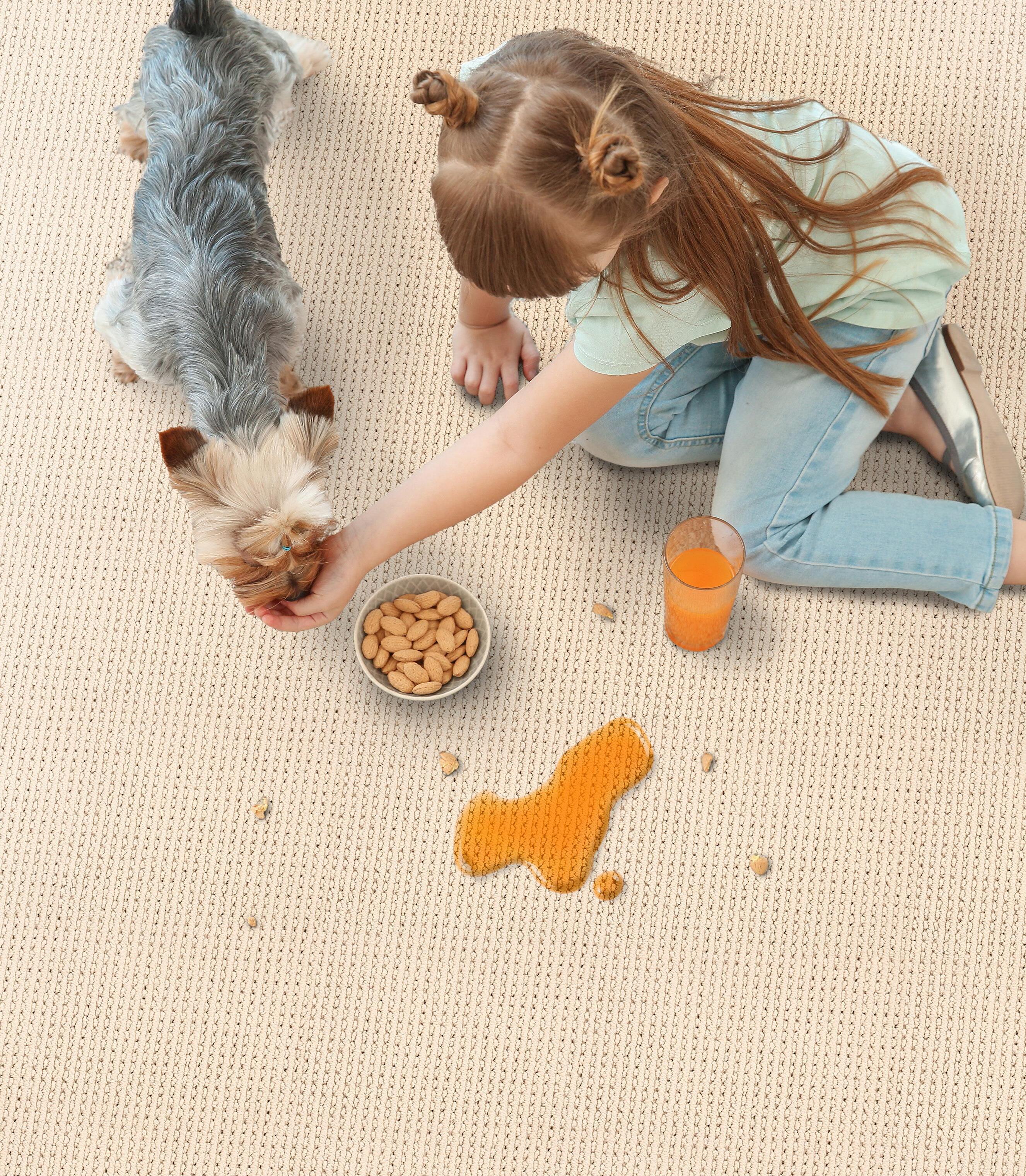
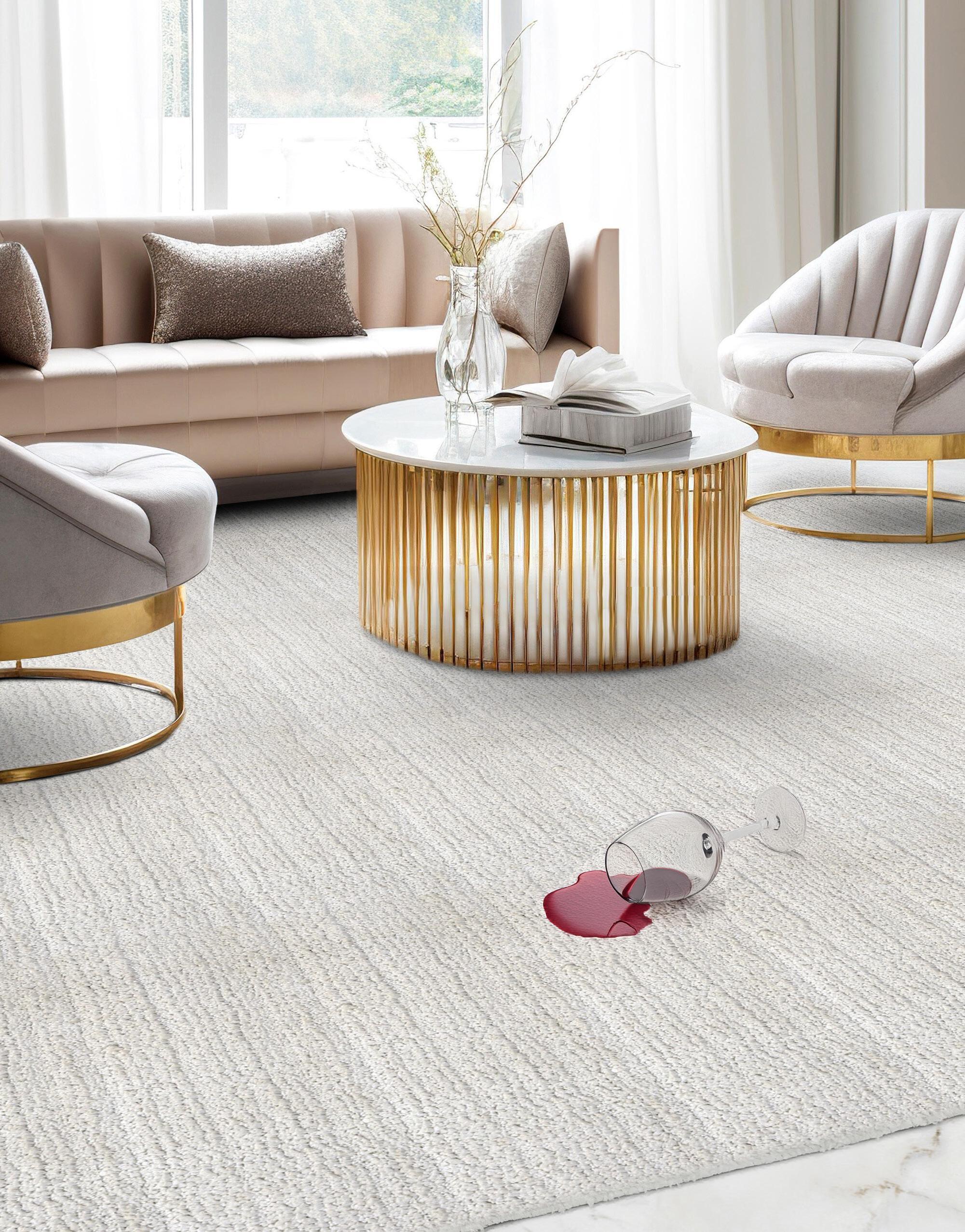



Maintaining your quality purchase will repay you by keeping its beauty for many years.
• Vacuum regularly. Frequent vacuuming is a carpet’s best friend. A suction only canister vacuum is best to prevent excess pilling, fuzzing and pulls. However, if this type is not available, set vacuum so that the brush is furthest away from the surface of the carpet.
• Remove spills immediately.
• Professionally clean as needed. Do not apply stain repellent treatments that contain silicone because they tend to accelerate carpet soiling.
• Keep doormats clean. Exercise preventative maintenance by placing absorbent mats at the most frequently used entrances to your home. Change or launder when these mats become soiled.
• The vacuum cleaner dust bag should be changed when half full.
• Filters in your heating and air conditioning systems should be changed regularly.
One of the most crucial areas of carpet maintenance is removal of spots and spills. Acting quickly when anything is spilled or dropped, and always having the necessary cleaning materials at hand are of the utmost importance.
• Immediately blot (do not rub) spills with white paper towels or with a clean absorbent cloth. Scoop up solids.
• All cleaning agents and solvents should be Ph neutral; pre-test should be done in an inconspicuous area.
• Apply the cleaning agent listed on the spot removal chart (right) to an absorbent towel and begin to blot up the spill with a blotting motion. Flip cloth to prevent reapplying soil.
• Do not over saturate with water.
• Work inwards from the edge of the spot to prevent excess spreading.
• Wait a few minutes for the cleaning agent to work on the spot. Follow recommended directions.
• Once the cleaning agent has removed the spot, blot excessive moisture by applying pressure with paper towels or a dry absorbent cloth.
• Rinse with clear water on a clean cloth.
• Remove excess moisture by applying pressure with paper towels.
Recommended Professional Cleaning
• Dry cleaning systems such as Capture®; Host®; Dri-Mate®; Wool Clean by Wools of New Zealand and Chem-Dry.
• Truck-Mounted steam extraction is acceptable for tackless wall to wall installations. We do not recommend steam cleaning for loose lay rugs.
• We do not recommend any portable units; nor any Bonnet systems or Rug Doctor systems.
Methylated mineral spirits, turpentine, or WoolClean Dry Spot Remover 4 Chill with aerosol freezing agent or ice cubes in a plastic bag; follow by picking or scraping off gum
Clean nail polish remover (preferably acetone)
Isopropyl
Rust
Absorbent powder (e.r., salt, talc or Absorb-It) 10 Absorbent cleaner (WoolClean,Spot Dry Remover, Host, Capture)
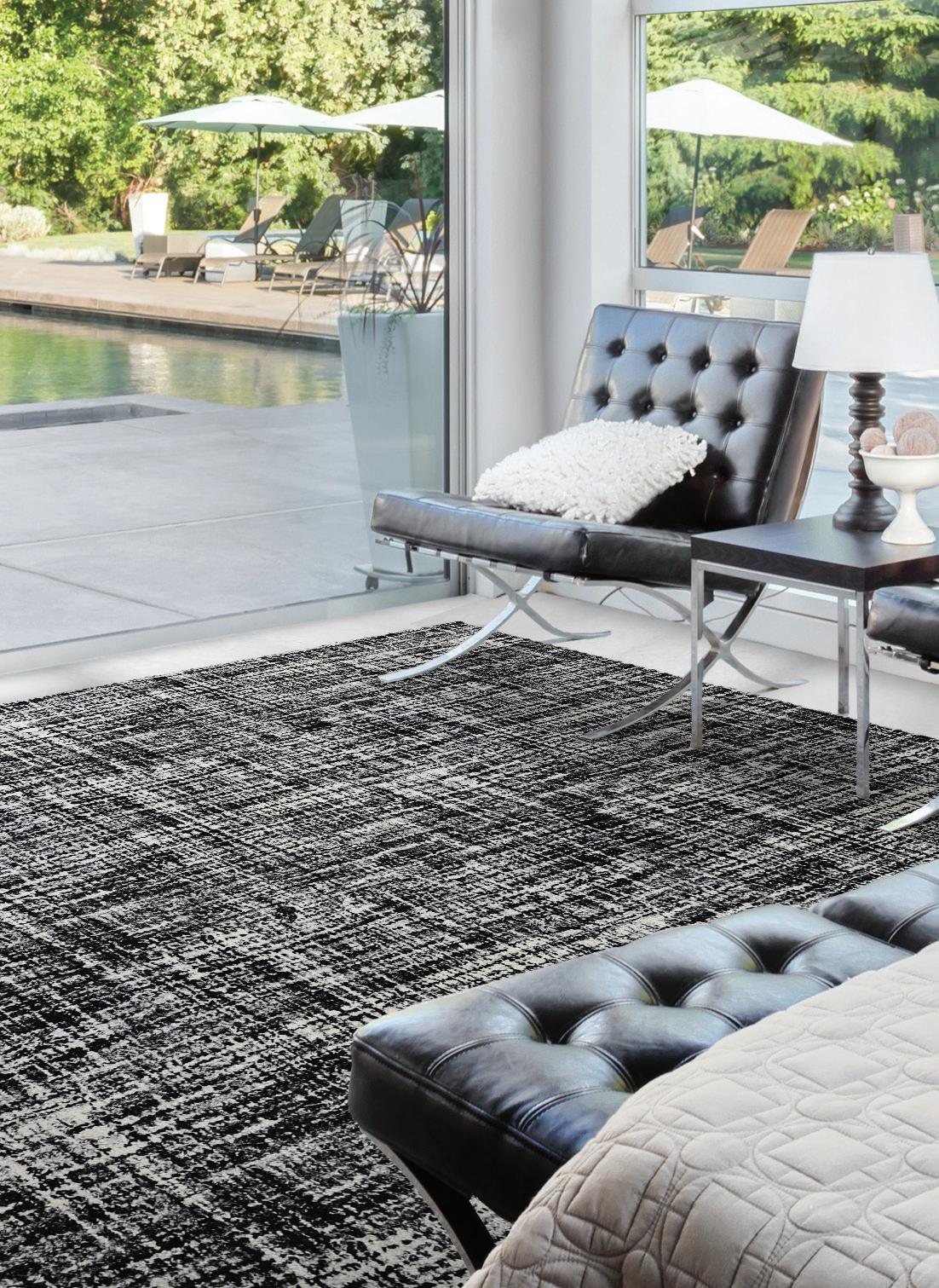
Maintaining your quality purchase will repay you by keeping its beauty for many years.
• Vacuum regularly. Frequent vacuuming is a carpet’s best friend. In most cases, a suction only canister vacuum is best to prevent excess pilling and fuzzing. However, if this type is not available, set vacuum so that the brush is furthest away from the surface of the carpet.
• Remove spills immediately.
• Professionally clean annually. Do not apply stain repellent treatments that contain silicone because they tend to accelerate carpet soiling.
• Keep doormats clean. Exercise preventative maintenance by placing absorbent mats at the most frequently used entrances to your home. Change or launder when these mats become soiled.
• The vacuum cleaner dust bag should be changed when half full.
• Filters in your heating and air conditioning systems should be changed regularly.
One of the most crucial areas of carpet maintenance is removal of spots and spills. Acting quickly when anything is spilled or dropped, and always having the necessary cleaning materials at hand are of the utmost importance.
• Immediately blot (do not rub) spills with white paper towels or with a clean absorbent cloth. Scoop up solids.
• All cleaning agents and solvents should be Ph neutral; pre-test should be done in an inconspicuous area.
• Apply the cleaning agent listed on the spot removal chart (right) to an absorbent towel and begin to blot up the spill with a blotting motion. Flip cloth to prevent reapplying soil.
• Do not over saturate with water.
• Work inwards from the edge of the spot to prevent excess spreading.
• Wait a few minutes for the cleaning agent to work on the spot. Follow recommended directions.
• Once the cleaning agent has removed the spot, blot excessive moisture by applying pressure with paper towels or a dry absorbent cloth.
• Rinse with clear water on a clean cloth.
• Remove excess moisture by applying pressure with paper towels.
Recommended Professional Cleaning
• Dry cleaning systems such as Capture®; Host®; Dri-Mate®; Wool Clean by Wools of New Zealand and Chem-Dry.
• Truck-Mounted steam extraction is acceptable for tackless wall to wall installations. We do not recommend steam cleaning for loose lay rugs.
• We do not recommend any portable units; nor any Bonnet systems or Rug Doctor systems.
Methylated mineral spirits, turpentine, or WoolClean Dry Spot Remover 4 Chill with aerosol freezing agent or ice cubes in a plastic bag; follow by picking or scraping off gum
Clean nail polish remover (preferably acetone)
Isopropyl
Absorbent powder (e.r., salt, talc or Absorb-It)
Absorbent cleaner (WoolClean,Spot Dry Remover, Host, Capture)
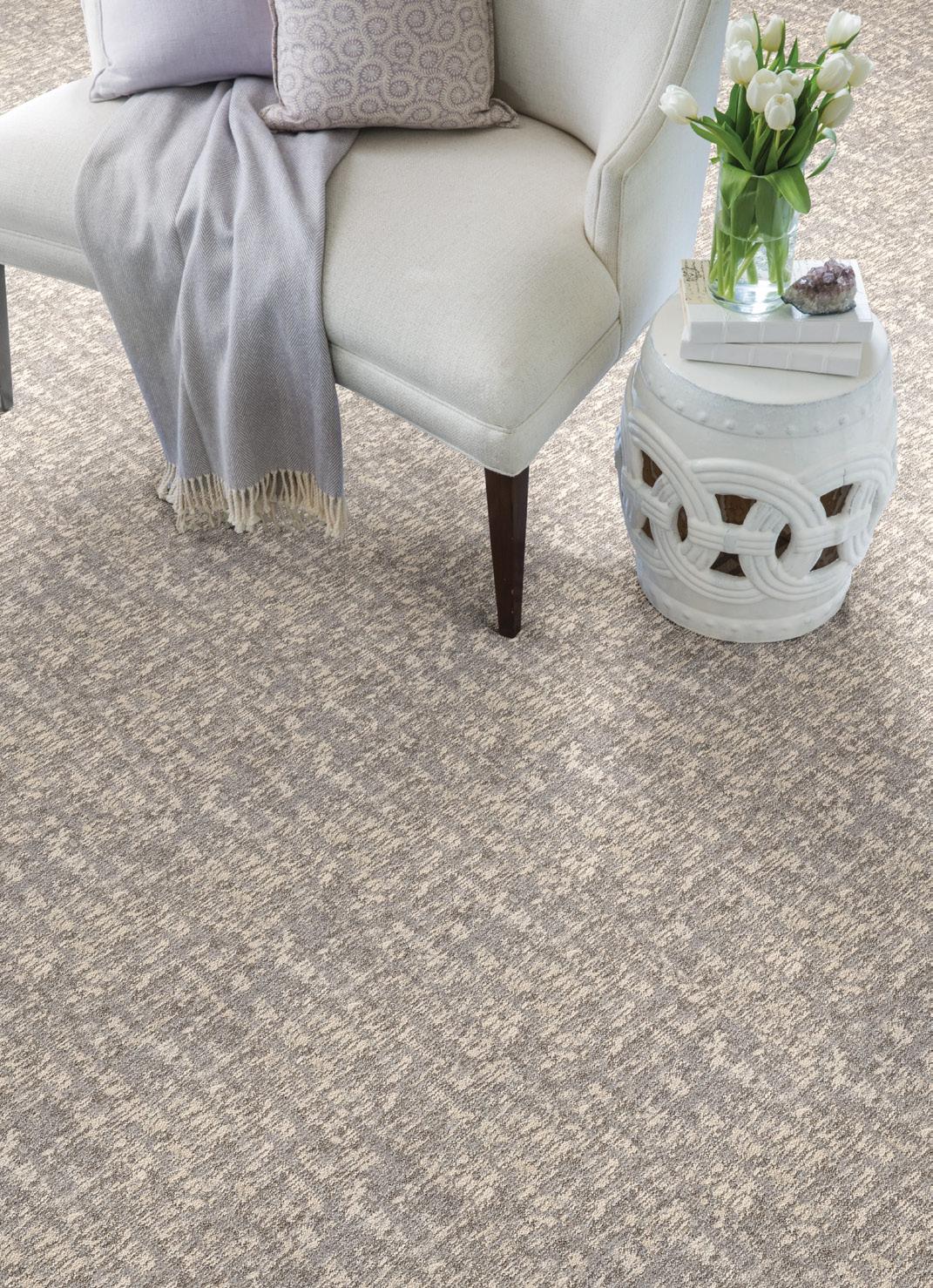
Maintaining your quality purchase will repay you by keeping its beauty for many years.
• Vacuum regularly. Frequent vacuuming is a carpet’s best friend. A suction only canister vacuum is best to prevent excess pilling, fuzzing and pulls. However, if this type is not available, set vacuum so that the brush is furthest away from the surface of the carpet.
• Remove spills immediately.
• Professionally clean as needed. Do not apply stain repellent treatments that contain silicone because they tend to accelerate carpet soiling.
• Keep doormats clean. Exercise preventative maintenance by placing absorbent mats at the most frequently used entrances to your home. Change or launder when these mats become soiled.
• The vacuum cleaner dust bag should be changed when half full.
• Filters in your heating and air conditioning systems should be changed regularly.
One of the most crucial areas of carpet maintenance is removal of spots and spills. Acting quickly when anything is spilled or dropped, and always having the necessary cleaning materials at hand are of the utmost importance.
• Immediately blot (do not rub) spills with white paper towels or with a clean absorbent cloth. Scoop up solids.
• All cleaning agents and solvents should be Ph neutral; pre-test should be done in an inconspicuous area.
• Apply the cleaning agent listed on the spot removal chart (right) to an absorbent towel and begin to blot up the spill with a blotting motion. Flip cloth to prevent reapplying soil.
• Do not over saturate with water.
• Work inwards from the edge of the spot to prevent excess spreading.
• Wait a few minutes for the cleaning agent to work on the spot. Follow recommended directions.
• Once the cleaning agent has removed the spot, blot excessive moisture by applying pressure with paper towels or a dry absorbent cloth.
• Rinse with clear water on a clean cloth.
• Remove excess moisture by applying pressure with paper towels.
Wall to Wall Cleaning
• Dry cleaning systems such as Capture®; Host®; Dri-Mate®; Wool Clean by Wools of New Zealand and Chem-Dry
• Truck-Mounted steam extraction is acceptable for tackless wall to wall installations. We do not recommend steam cleaning for loose lay rugs
• We do not recommend any portable units; nor any Bonnet systems or Rug Doctor systems.
Methylated mineral spirits, turpentine, or WoolClean Dry Spot Remover 4 Chill with aerosol freezing agent or ice cubes in a plastic bag; follow by picking or scraping off gum
Absorbent powder (e.r., salt, talc or Absorb-It)
Absorbent cleaner (WoolClean,Spot Dry Remover, Host, Capture)
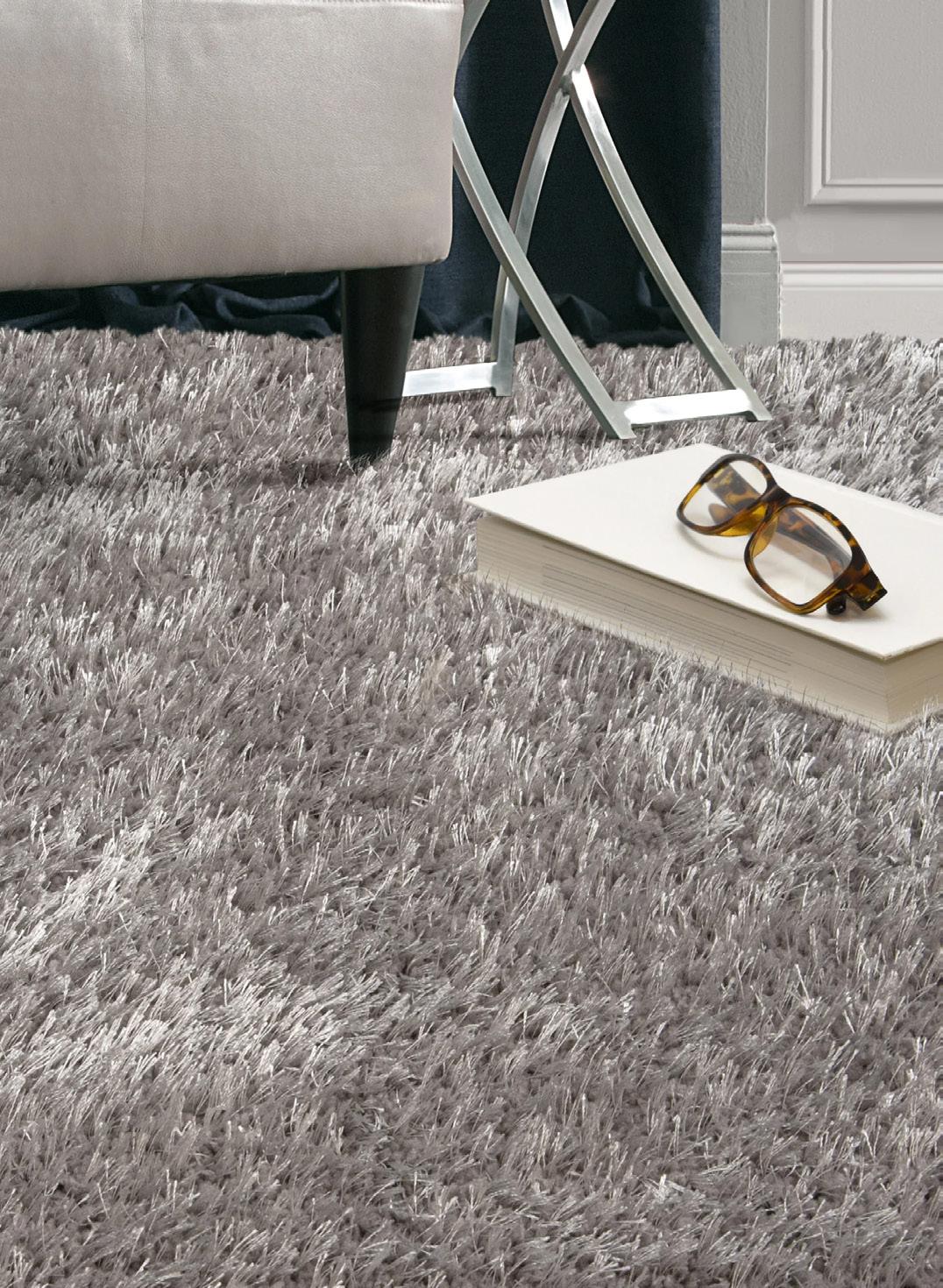
Swag in Chromium
Maintaining your quality purchase will repay you by keeping its beauty for many years.
• Natural fibers are inherently absorbent and should not be placed in areas that are damp or where spills are likely to occur (kitchens, bathrooms, basements, and porches).
• Vacuum regularly. Frequent vacuuming is a carpet’s best friend. This will remove the fine dirt particles that can lodge between the fibers and cause additional wear. For best results, use a vacuum with strong suction and brush attachment or beater bar.
• Remove spills immediately. (see additional information below)
• Professionally clean as needed. Never steam clean or wet-shampoo a natural fiber floor covering.
• Keep doormats clean. Exercise preventative maintenance by placing absorbent mats at the most frequently used entrances to your home. Change or launder when these mats become soiled.
• The vacuum cleaner dust bag should be changed when half full. Filters in your heating and air conditioning systems should be changed regularly.
One of the most crucial areas of carpet maintenance is removal of spots and spills. Acting quickly when anything is spilled or dropped, and always having the necessary cleaning materials at hand are of the utmost importance.
• Remove spills immediately.
• Liquid spills act as a magnet to any dirt particles that are in the carpet, causing the dirt to rise to the surface. This dirt may cause a dark stain. Immediately blot – do not rub – the spot with a clean, absorbent white cloth or paper towel. Rubbing can work the liquid deeper into the fibers, making the spill more likely to stain the carpet.
• To remove spots caused by solid substances, first remove any remaining material. Scrape it up with a spoon, always working from the outside of the spot toward the center.
• Pretest spot-removal in an inconspicuous area.
• Apply the cleaning agent listed on the spot removal chart (right) to an absorbent towel and begin to blot up the spill with a blotting motion. Flip cloth to prevent reapplying soil.
• Do not over use water.
• Work inwards from the edge of the spot to prevent excess spreading.
• Wait a few minutes for the cleaning agent to work on the spot. Follow recommended directions.
• Once the cleaning agent has removed the spot, blot excessive moisture by applying pressure with paper towels or a dry absorbent cloth.
• Dry cleaning systems such as Capture®; Host®; Dri-Mate®; Wool Clean by Wools of New Zealand and Chem-Dry.
• Truck-Mounted steam extraction is acceptable for tackless wall to wall installations. We do not recommend steam cleaning for loose lay rugs.
• We do not recommend any portable units; nor any Bonnet systems or Rug Doctor systems.
TYPE OF SPILL
REMEDY
Beer or Liquor A or D
Blood A or D
Butter A or B
Candy A or E
Coffee A or E
Chocolate A or D
Crayon B and A
Egg A or C
Feces A or C
Food Coloring C and A
Fruit Juice A or E
Furniture Polish A or C
Glue - model I
Glue - white C and A
Gravy A or E
Gum A or G
Hair Spray A or B
Hand Lotion A or B
Ice Cream A or E
Ink A or B
Ketchup A or C
Lipstick A or B
Mascara A or B
Mayonnaise A or C
Merthiolate A and E
Milk A and E
Nail Polish l and A
Oil - cooking A or B
Oil - furniture A or B
TYPE OF SPILL REMEDY
Paint - latex A or F
Paint - oil base A or B
Rust A
Shoe Polish A or B
Soft Drinks A or E
Tar A and B
Tea A or D
Urine A or E
Wax G
Watercolors A or F
Wine A or E
A Use HOST Dry Cleaner for Carpets
B Solvent, blot, detergent, blot, water, blot
C Detergent, blot, ammonia, blot, detergent, blot, water, blot
D Detergent, blot, vinegar, blot, detergent, blot, water, blot
E Detergent, blot, ammonia, blot, vinegar, blot, detergent, blot, water, blot
F Detergent, blot, ammonia, blot, water, blot, solvent, blot
G
Freeze with ice cube, shatter with blunt object, vacuum, solvent, blot (for wax, place paper over wax, iron with warm - not hot - iron to absorb)
H Cool water, blot, ammonia, blot, detergent, blot, water, blot
I Acetone polish remover, blot, repeat
Solvent = HOST Spot Remover, or any commercial dry cleaning solvent
Detergent = 1 tsp laundry detergent (without bleach) + 1 cup lukewarm water
Vinegar = 1/4 cup white vinegar + 1/4 cup water
Ammonia = 1 tsp clear household ammonia and 1/2 cut water
Viscose fibers are a natural fiber and are inherently absorbent and should not be placed in areas that are damp or where spills are likely to occur (kitchens, bathrooms, basements, and porches). If spills do occur blot immediately with a clean dry cloth and apply a dry clean agent such as Host or Capture, follow the recommended instructions for dry clean products, multiple applications are sometimes needed.
Give your carpet the normal protection from direct sunlight that you would give to any colored fabric. Fading can be caused by emissions from heating fuels or chemicals such as pesticides, household cleaning agents and other household items.
Maintaining your quality purchase will repay you by keeping its beauty for many years.
• Vacuum regularly. Frequent vacuuming is a carpet’s best friend. A suction only canister vacuum is best to prevent excess pilling, fuzzing and pulls. However, if this type is not available, set vacuum so that the brush is furthest away from the surface of the carpet.
• Remove spills immediately.
• Professionally clean as needed. Do not apply stain repellent treatments that contain silicone because they tend to accelerate carpet soiling.
• Keep doormats clean. Exercise preventative maintenance by placing absorbent mats at the most frequently used entrances to your home. Change or launder when these mats become soiled.
• The vacuum cleaner dust bag should be changed when half full.
• Filters in your heating and air conditioning systems should be changed regularly.
One of the most crucial areas of carpet maintenance is removal of spots and spills. Acting quickly when anything is spilled or dropped, and always having the necessary cleaning materials at hand are of the utmost importance.
• Immediately blot (do not rub) spills with white paper towels or with a clean absorbent cloth. Scoop up solids.
• Blot up the spill with a blotting motion. Flip cloth to prevent reapplying soil. Do Not Rub!
• Spot cleaning with dry cleaning products only
• Work inwards from the edge of the spot to prevent excess spreading.
• Apply Dry Cleaning Agent (Host, Capture or Dri-Mate.)
• Wait a few minutes for the cleaning agent to work on the spot. Follow recommended directions.
• Once the cleaning agent has removed the spot, blot excessive moisture by applying pressure with paper towels or a dry absorbent cloth.
Recommended Professional Cleaning
Dry cleaning systems such as Capture®; Host®; Dri-Mate®; Wool Clean by Wools of New Zealand and Chem-Dry.
Maintaining your quality purchase will repay you by keeping its beauty for many years.
• Natural fibers are inherently absorbent and should not be placed in areas that are damp or where spills are likely to occur (kitchens, bathrooms, basements, and porches).
• Vacuum regularly. Frequent vacuuming is a carpet’s best friend. This will remove the fine dirt particles that can lodge between the fibers and cause additional wear. For best results, use a suction only vacuum: no beater bar, no rotary power head.
• Remove spills immediately with a clean dry cloth.
• Professionally clean as needed. Never steam clean or wet-shampoo a natural fiber floor covering.
• Keep doormats clean. Exercise preventative maintenance by placing absorbent mats at the most frequently used entrances to your home. Change or launder when these mats become soiled.
• The vacuum cleaner dust bag should be changed when half full. Filters in your heating and air conditioning systems should be changed regularly.
One of the most crucial areas of carpet maintenance is removal of spots and spills. Acting quickly when anything is spilled or dropped, and always having the necessary cleaning materials at hand are of the utmost importance.
• Remove spills immediately.
• Liquid spills act as a magnet to any dirt particles that are in the carpet, causing the dirt to rise to the surface. This dirt may cause a dark stain. Immediately blot – do not rub –the spot with a clean, absorbent white cloth or paper towel. Rubbing can work the liquid deeper into the fibers, making the spill more likely to stain the carpet.
• To remove spots caused by solid substances, first remove any remaining material. Scrape it upwith a spoon, always working from the outside of the spot toward the center
• Stanton recommends spot cleaning with dry cleaning products only, Capture, Host, Wool Dri.
• Pretest spot-removal in an inconspicuous area.
Wall to Wall Cleaning
Professionally clean as needed. Never steam clean or wet-shampoo a natural fiber floor covering which can cause shrinkage, discoloration, and/or staining. Please be aware that proper maintenance on natural products calls for Dry Clean Only.
• Vacuum or sweep regularly and/or shake to remove dust.
• Keep away from prolonged moisture.
• Blot spills immediately with a clean dry cloth.
• Simply hose off outdoor rug to clean.
• Rotate your rug twice a year to avoid traffic wear spots on your rug.
• Use rug pads when used indoors.
• All-weather rug construction is pet-friendly and mold- and mildew-resistant.
• Yarn-dyed fiber has incredibly rich color that holds its vibrancy over time.
• Made of polypropylene, a stain-resistant, water-repellent synthetic material.
• Resistant to high heat temperatures so yarns will not wilt in hot climates.
• All-weather rugs are resistant to chemicals, including bleach, so they easily repel stains and are equally easy to clean.
• Flexible yarns maintain their original firmness, so you get a long-wearing rug that’s incredibly supple.
• Lightweight for easy cleaning and relocating.
• Woven to be incredibly tough and durable; Polypropylene rugs resist cracking in extreme temperatures.
• Quick-drying, thanks to low water absorption quality and moisture barrier aspect of the yarns.
• Stain resistant, so you can use these rugs in your outdoor decor without worry.
• Outstanding resistance keeps your area rugs in high-quality condition for years.
• Adds warmth underfoot in cooler temperatures and relief from hot surfaces in hot climates.
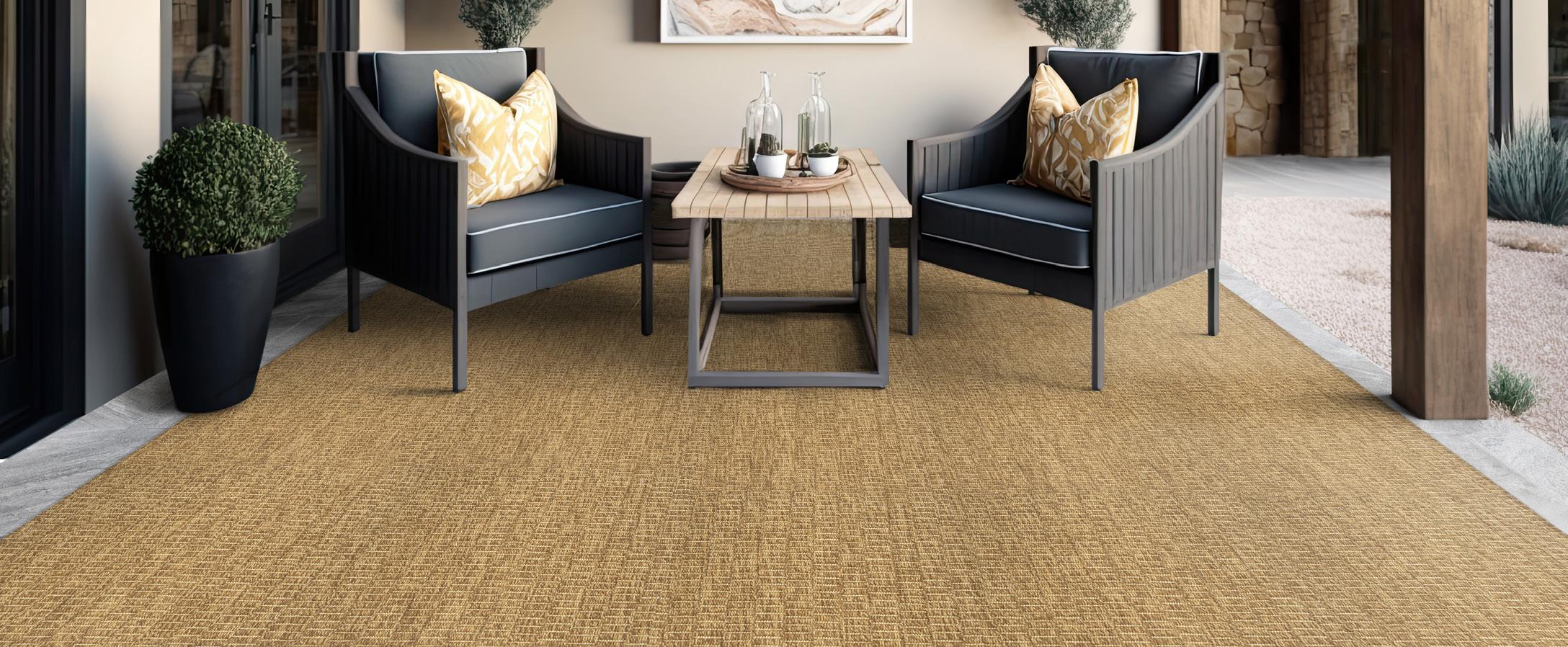
Look for the Scotchgard™ Brand label to make sure your carpet is protected with Scotchgard™ protection. This label lets you know that you will be receiving all the benefits that Scotchgard™ Protector’s have to offer.
• Use entrance mats. Place mats inside and outside entrances to trap oil before it can be tracked into your home. Soil is the greatest threat to your carpet’s appearance
• Vacuum regularly. The most important thing you can do for your carpet is to vacuum regularly. Removing dirt particles will reduce abrasion that can dull carpet fibers. Use a vacuum with a beater-bar, which will raise the pile when it removes soil.
• Blot up spills immediately. Immediate attention to spills and spots will make removal easier. Always blot the area being cleaned. Never rub, scrub or use a brush.
• Clean periodically. Clean your carpet using hot water extraction before it shows traffic patterns. Professional hot water extraction is the preferred method
Most household spills can be removed using the Easy 1-2-3 Spot Cleaning Method. To start, locate your stain on the chart below and follow the cleaning steps until the stain is removed.
For these stains, start with step 1. If the stain remains, proceed with steps 2 and 3. Steps are shown on the next page.
WATER BASED STAINS
For these stains, use Goo Gone. Follow directions on package, and then proceed with steps 1, 2 and 3. Steps are shown on the next page.
* Freeze and remove solid materials before using dry cleaning fluid.
For these stains, start with step 1. If the stain remains, proceed with step 3. Omit step 2. Steps are shown on the next page.
WATER BASED STAINS
Steps for 1-2-3 Spot Cleaning Method
For these stains, use Goo Gone. Follow directions on package, and then proceed with steps 1, 2 and 3.
STEP 1
• Use a spoon or dull knife to remove solid materials.
• For large stains, work from the outside of stain to the center to prevent spreading.
• Blot up liquid spills with a towel or white paper towel.
• Mix a solution of ¼ teaspoon of clear hand dishwashing detergent with 1 cup of water. Stir Gently.
• Apply detergent solution directly to a white cloth. Dampen the carpet fibers in the stained area with a cloth. Avoid saturating the carpet.
• Wipe gently. Turn cloth frequently. Never rub, scrub or use a brush because it may damage carpet fibers.
• If necessary, use your fingertips to work the solution to the base of the stain.
• Wet the stained carpet fibers with clear, lukewarm water to rinse.
• Cover the spot with an absorbent towel or white paper towel and apply pressure to blot.
• Repeat the rinsing and blotting procedures until you are sure all traces of the detergent have been removed.
• If the stain is gone, place an absorbent towel or white paper towel over the area cleaned, and weigh towels down with a heavy, color-fast object, such as a weighted plastic wastebasket.
• Change towels or paper towels until carpet dries.
• If stain remains, proceed to step 2 (for coffee, tea or urine, skip step 2 and proceed to step 3)
STEP 2
• Do not use on coffee, tea or urine stains.
• Mix 2 tablespoons of non-bleaching, non-sudsing household ammonia with 1 cup of lukewarm water.
• Apply ammonia solution, rinse and blot as outlined in Step 1.
• Do not dry with paper towels. Proceed to step 3 to neutralize the ammonia solution.
STEP 3
• Mix 1 cup of white vinegar with 2 cups of water.
• Apply vinegar solution, rinse and blot as outline in step 1.
If this process does not remove the stain, contact the Scotchgard Service Center at 1.800.433.3296 for further assistance.
If is not unusual for stains to sometimes reappear after spot-cleaning. Wicking occurs when a liquid has been spilled on the carpet (usually a large quantity) and cleaning attempts remove only the stain and liquid from the carpet fibers. Liquid still remains in the carpet backing or padding. Through capillary action, the stain can “wick” back up into the carpet fibers. Residual re-soiling occurs if staining substances or cleaning products are left in the carpet and attract soil. These stains are not permanent and typically can be removed by simply repeating the appropriate step-by-step directions listed in steps 1-3.
• Avoid overwetting the carpet backing during spot cleaning and rinsing. Blotting to remove excess moisture reduces the occurrence of wicking stains.
• Use a “wet-vac” to extract liquid from the area if possible. Paper toweling placed over the cleaned area and weighted with a color-fast object will help absorb resurfacing stains. Use of fans to decrease the drying time will also help.
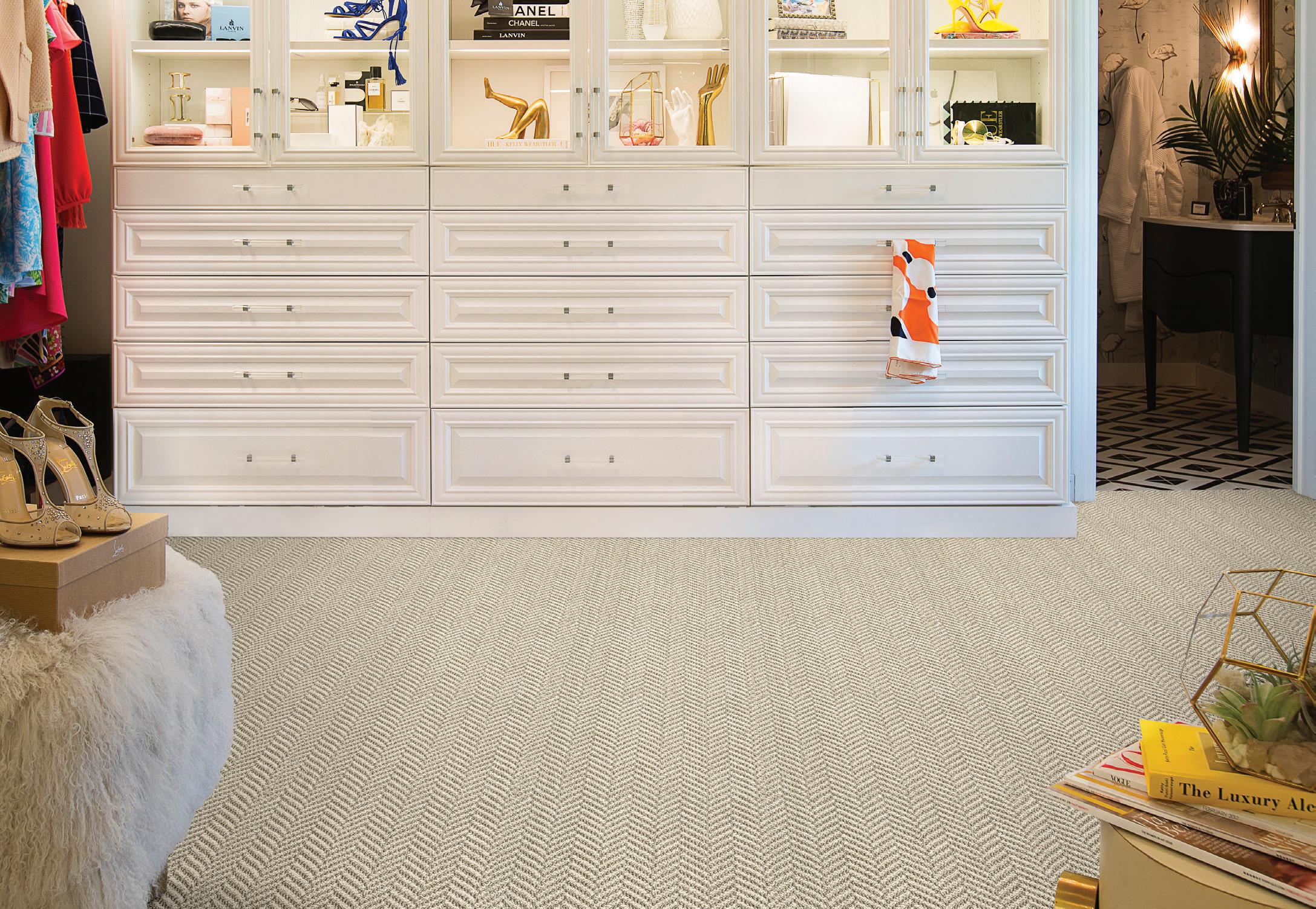

Maintaining your quality purchase will repay you by keeping its beauty for many years.
• Vacuum regularly. Frequent vacuuming with a suction only canister vacuum is recommended. However, if this type is not available, set vacuum so that the brush is furthest away from the surface of the carpet.
• Remove spills immediately.
• Professionally clean as needed. Do not apply stain repellent treatments that contain silicone because they tend to accelerate carpet soiling.
• Keep doormats clean. Exercise preventative maintenance by placing absorbent mats at the most frequently used entrances to your home. Change or launder when these mats become soiled.
• The vacuum cleaner dust bag should be changed when half full.
• Filters in your heating and air conditioning systems should be changed regularly.
One of the most crucial areas of carpet maintenance is removal of spots and spills. Acting quickly when anything is spilled or dropped, and always having the necessary cleaning materials at hand are of the utmost importance.
• Immediately blot (do not rub) spills with white paper towels or with a clean absorbent cloth. Scoop up solids.
• All cleaning agents and solvents should be Ph neutral; pre-test should be done in an inconspicuous area,
• Apply the cleaning agent listed on the spot removal chart (next page) to an absorbent towel and begin to blot up the spill with a blotting motion. Flip cloth to prevent reapplying soil.
• Do not over saturate with water.
• Work inwards from the edge of the spot to prevent excess spreading.
• Wait a few minutes for the cleaning agent to work on the spot. Follow recommended directions.
• Once the cleaning agent has removed the spot, blot excessive moisture by applying pressure with paper towels or a dry absorbent cloth.
• Rinse with clear water on a clean cloth.
• Remove excess moisture by applying pressure with paper towels.
Recommended Professional Cleaning
• Dry cleaning systems such as Capture®; Host®; and Chem-Dry
• Professional Dry-Cleaning Service
• We do not recommend any portable units, nor any Bonnet systems or Rug Doctor systems.
Methylated mineral spirits, turpentine, or Dry Spot Remover
Chill with aerosol freezing agent or ice cubes in a plastic bag. Follow by picking or scraping off gum
Absorbent powder (e.g., salt, talc, or Absorb-It)
Absorbent cleaner: Spot Dry Remover, Host, Capture
Prepare a mixture of water and bleach in a spray bottle at a ratio of 9:1 (9 parts water to 1 part bleach). Apply to the stained/affected area until it clears. Rinse with water and dry.
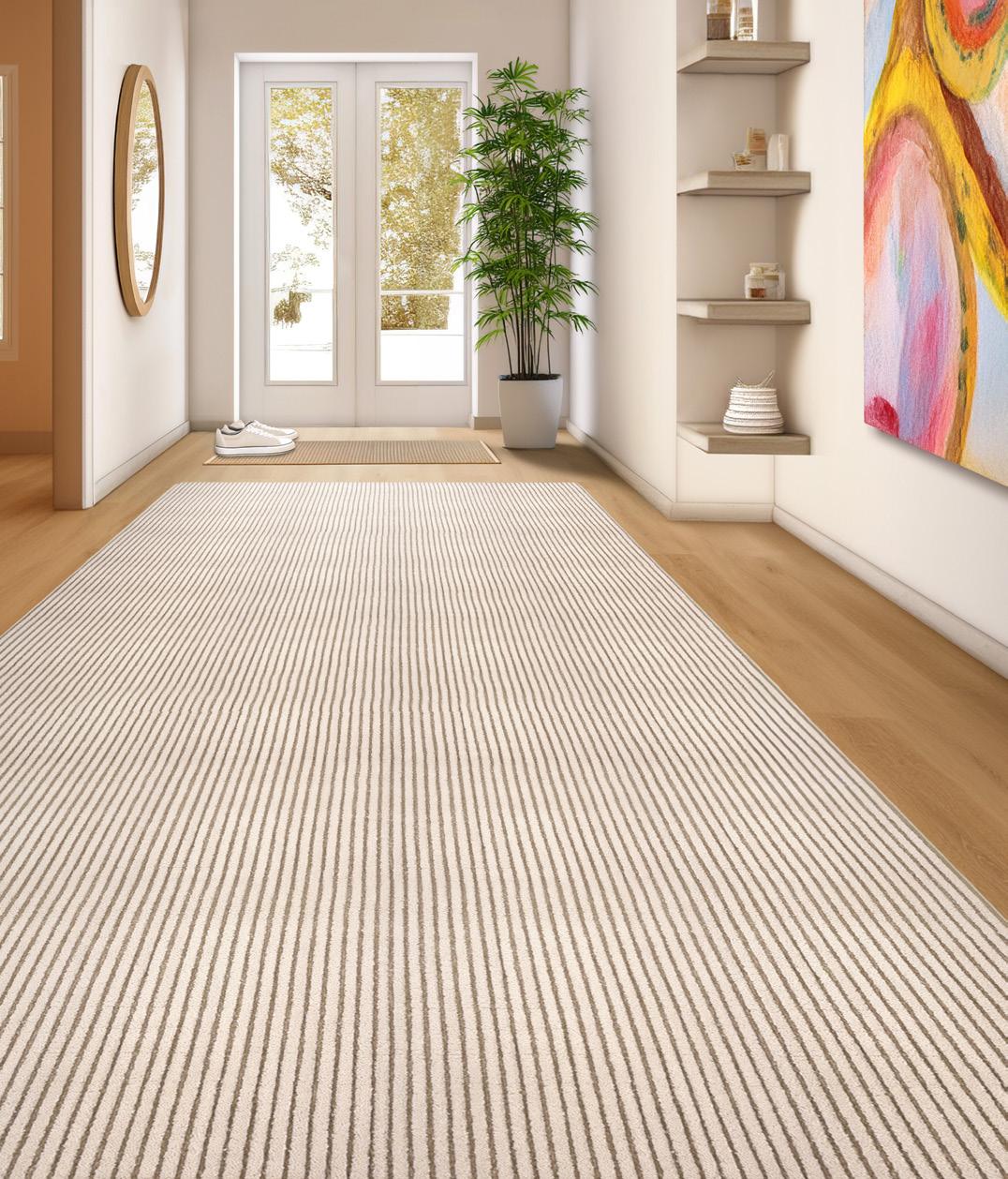
Clemente in Opal Matte
